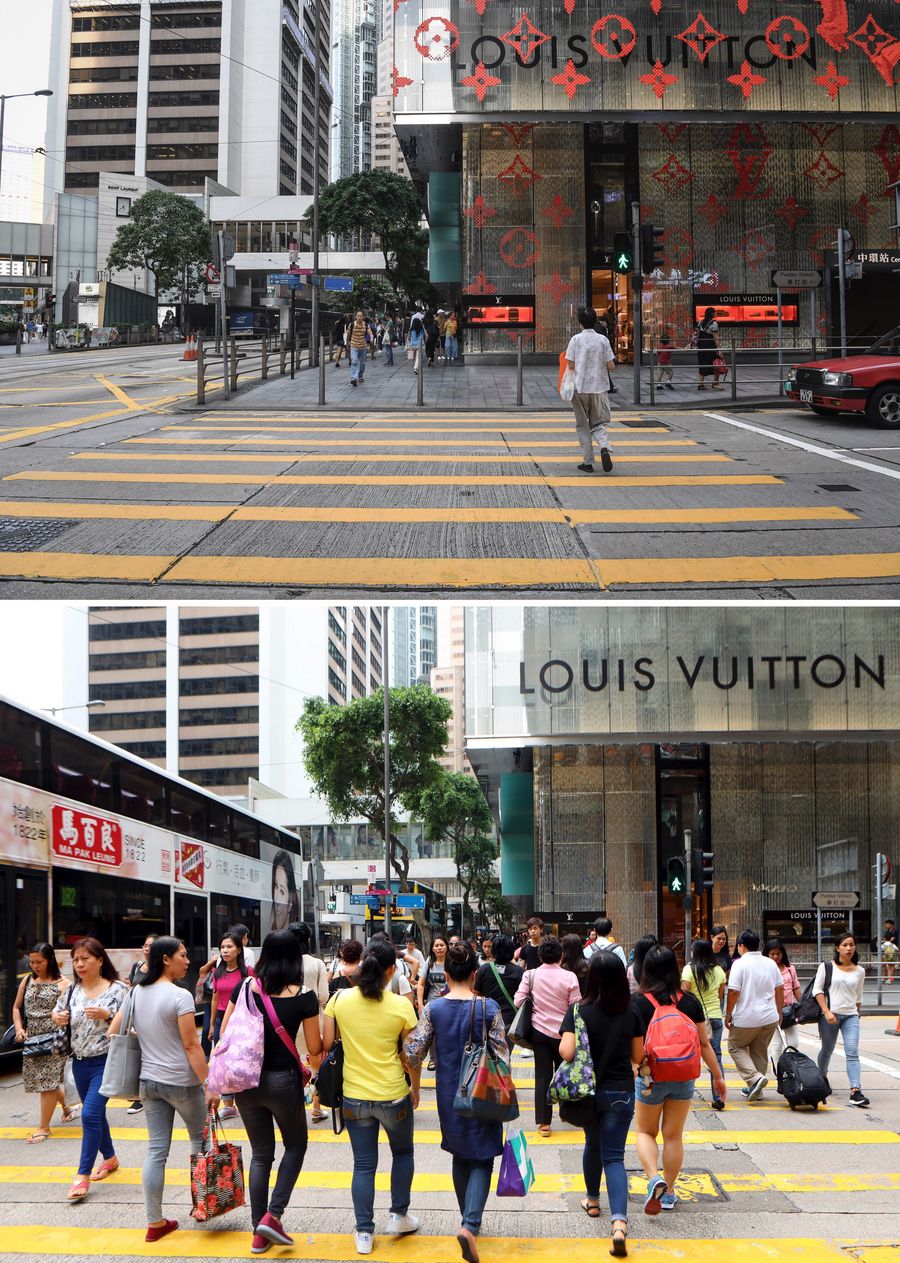
Two photos show the difference before and after the disruptive acts taken by some violent protesters in Hong Kong. (Xinhua/Mao Siqian, Li Peng)
Recent disruptive and violent acts of some radicals have exerted negative influence on Hong Kong's economy, government officials say.
HONG KONG, Aug. 23 (Xinhua) -- Officials of China's Hong Kong Special Administrative Region (HKSAR) government said Friday the recent disruptive and violent acts of some radicals have exerted negative influence on the economy and urged residents not to participate in such activities that impede peace and order of Hong Kong.
As an international aviation hub, Hong Kong's aviation, tourism, trade and logistic sectors have suffered serious damage, Frank Chan, secretary for transport and housing of the HKSAR government, said at a press conference.
The Hong Kong International Airport handled around 4.16 million passengers from Aug. 1 to 21, down 540,000 from the same period a year ago, and its cargo volume was also down 14 percent, Chan said.
Amid repeated calls on social media for further disturbances at the airport in the coming weekend, the High Court of the HKSAR extended an interim injunction to restrain persons from unlawfully and willfully obstructing or interfering with the proper use of the airport.
Chan called on residents to abide by the injunction and not to disturb other travelers.
Edward Yau, secretary for commerce and economic development of the HKSAR government, said the number of visitors to Hong Kong during Aug. 15 to 20 dropped by 49.6 percent year on year, the largest decline in recent years, and the hotel industry was also hit hard as the occupancy rate of some hotels dropped by more than half in August, in contrast to a 90-percent average rate for the whole sector a year ago.
Yau said he hoped social order can be restored and the negative effects on residents and the economy can be gradually eliminated.
At the press conference, Nicholas Yang, secretary for innovation and technology, refuted recent rumors about the smart lampposts. The smart lampposts can neither recognize faces nor read identity card data, Yang said, reassuring residents that the installation of the lampposts will not infringe upon personal privacy.
"The smart lampposts are part of the blueprint for a smart city, and there has been the consensus to open up data and develop Hong Kong into a smart city," Yang said, promising more efforts to dispel public concerns on privacy protection.



